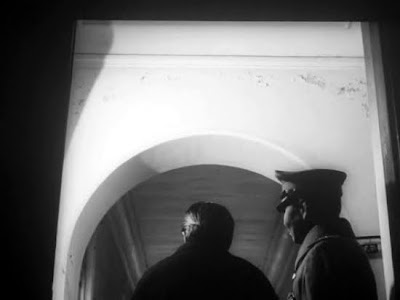"When I made Coup d'état, I felt that there was a limitation to what I could pursue in the medium of cinema. In Coup d'état there are no characters according to the preconceived rules of cinema. It's totally free. So even if I were to treat different themes, it would be only a modification of what I did in Coup d'état. For me, it's the most perfect film, in the sense that there is no waste. Just the structure is there. The rest of my career would have become just a repetition of what I had already completed. A different way of saying that is that even if I took a situation that was happening in the contemporary time and made it into a film, the structure would still be the same as that of Coup d'état." - Kiju Yoshida
I would like to say the following: to obliterate waste to the extreme point that only the structure stands firmly on its own, is to place itself - even on an unconscious level - beyond the essential structure. That is true because structure is a relational concept which can't be thought alone in pragmatic terms, which is to say, when the film is being made. No film is a script and when it tries to be so, it's a dancing skeleton (Coup D'État is indeed a dancing skeleton). It seems to me that Kiju Yoshida's apparently antithetic cinema works mainly in the following way: to negate is to affirm erasing, to destroy is returning to the chaotic unity of things. In spite of this, the inexorable bullet that opens Kita Ikki's head is that violent moment in which cinema reveals itself as a silent corpse. No words are allowed. Freedom, as Yoshida calls it, lies precisely in that moment of pure cinema.
I would like to say the following: to obliterate waste to the extreme point that only the structure stands firmly on its own, is to place itself - even on an unconscious level - beyond the essential structure. That is true because structure is a relational concept which can't be thought alone in pragmatic terms, which is to say, when the film is being made. No film is a script and when it tries to be so, it's a dancing skeleton (Coup D'État is indeed a dancing skeleton). It seems to me that Kiju Yoshida's apparently antithetic cinema works mainly in the following way: to negate is to affirm erasing, to destroy is returning to the chaotic unity of things. In spite of this, the inexorable bullet that opens Kita Ikki's head is that violent moment in which cinema reveals itself as a silent corpse. No words are allowed. Freedom, as Yoshida calls it, lies precisely in that moment of pure cinema.





Sem comentários:
Enviar um comentário